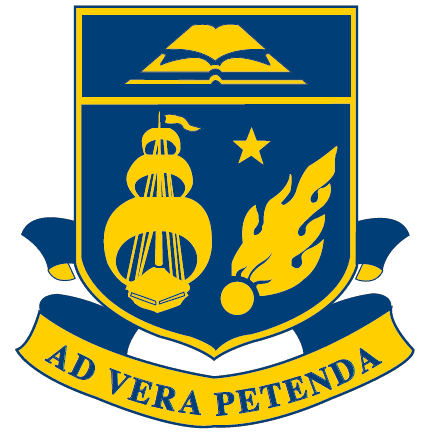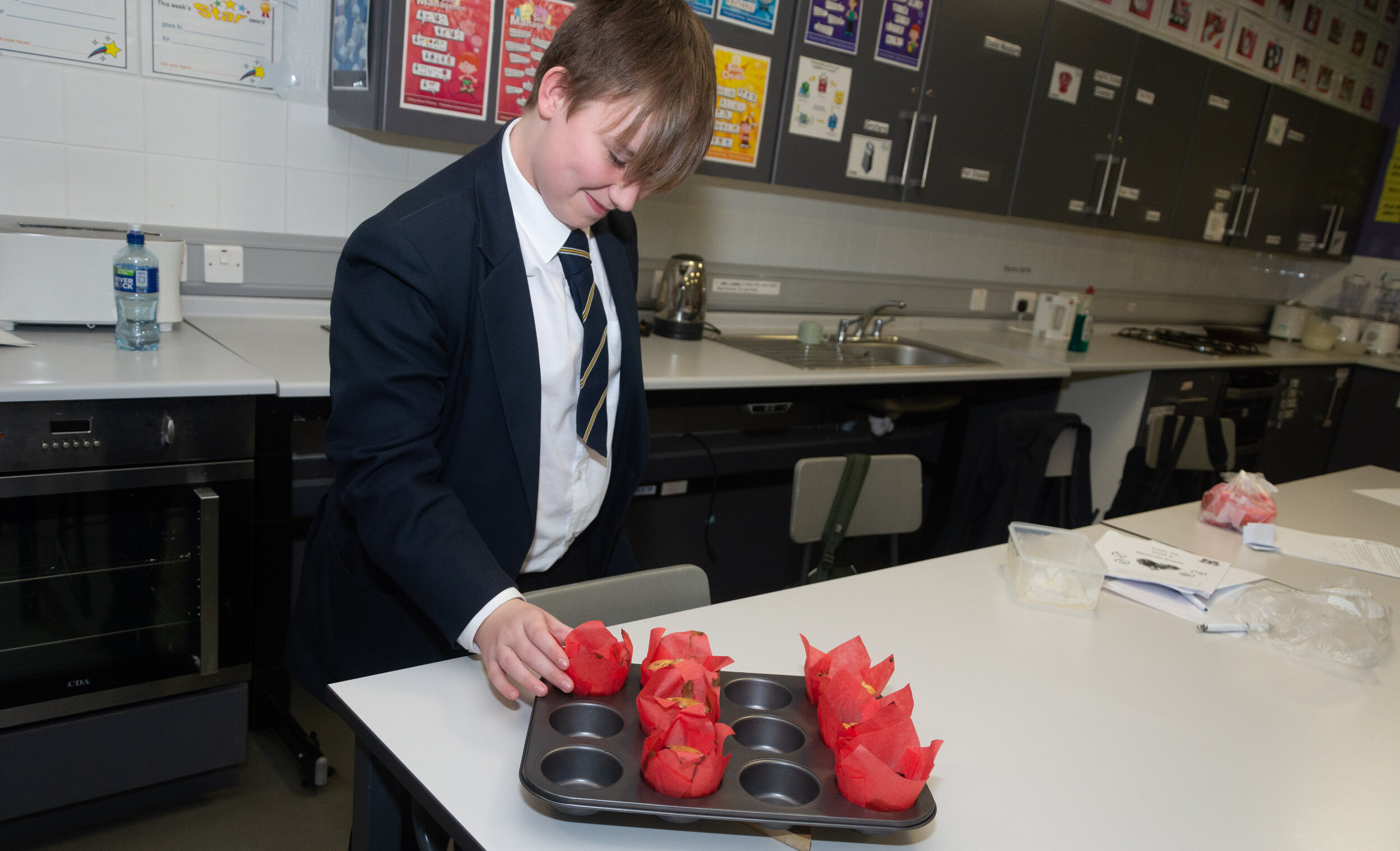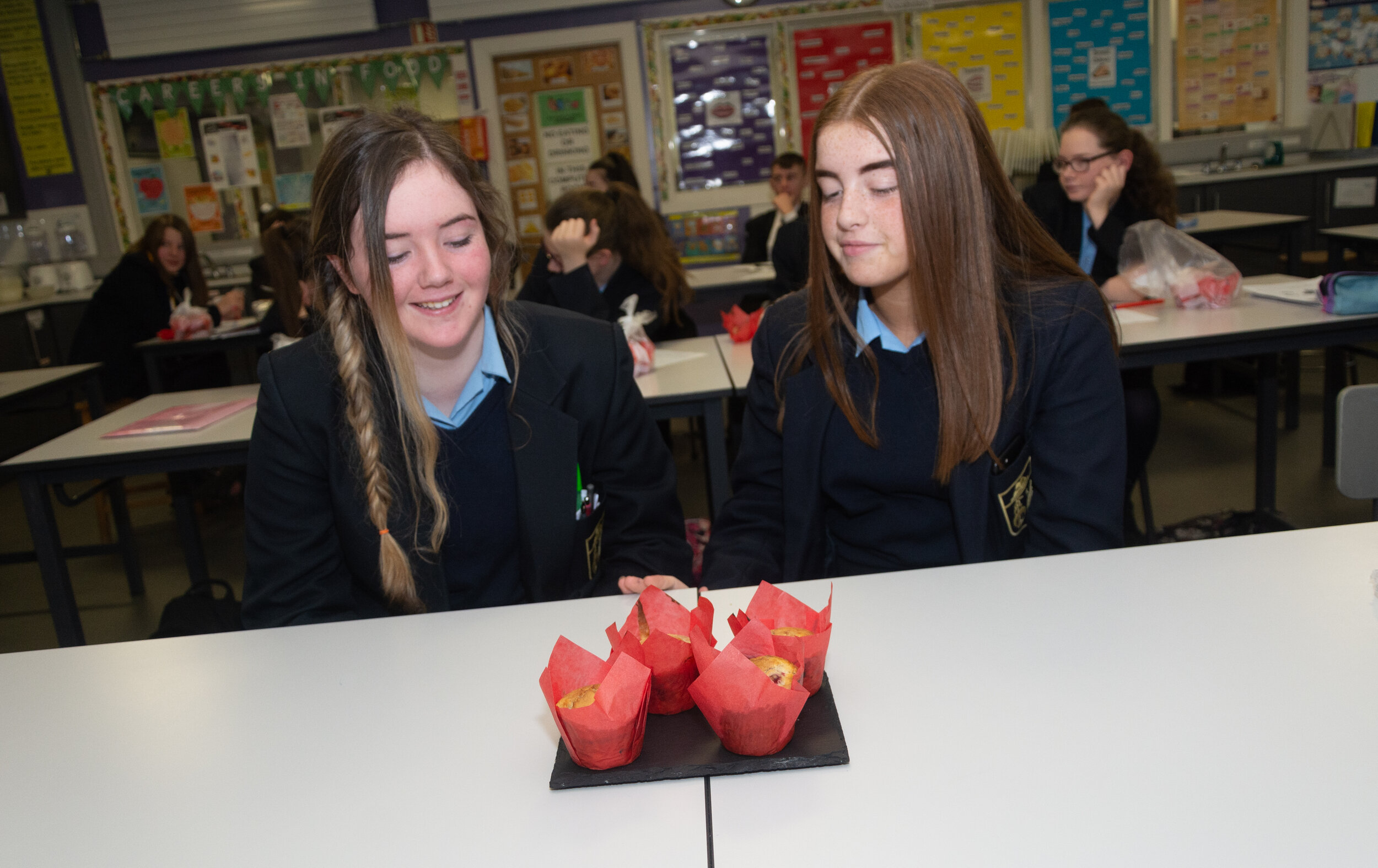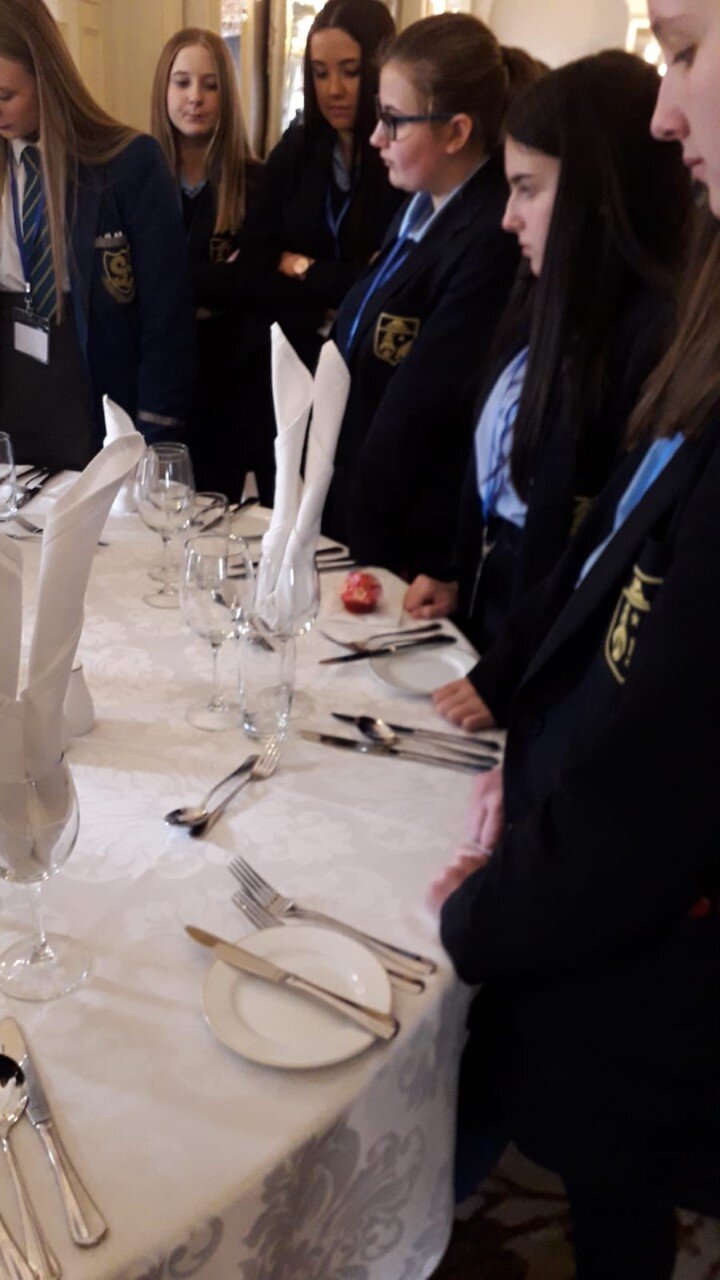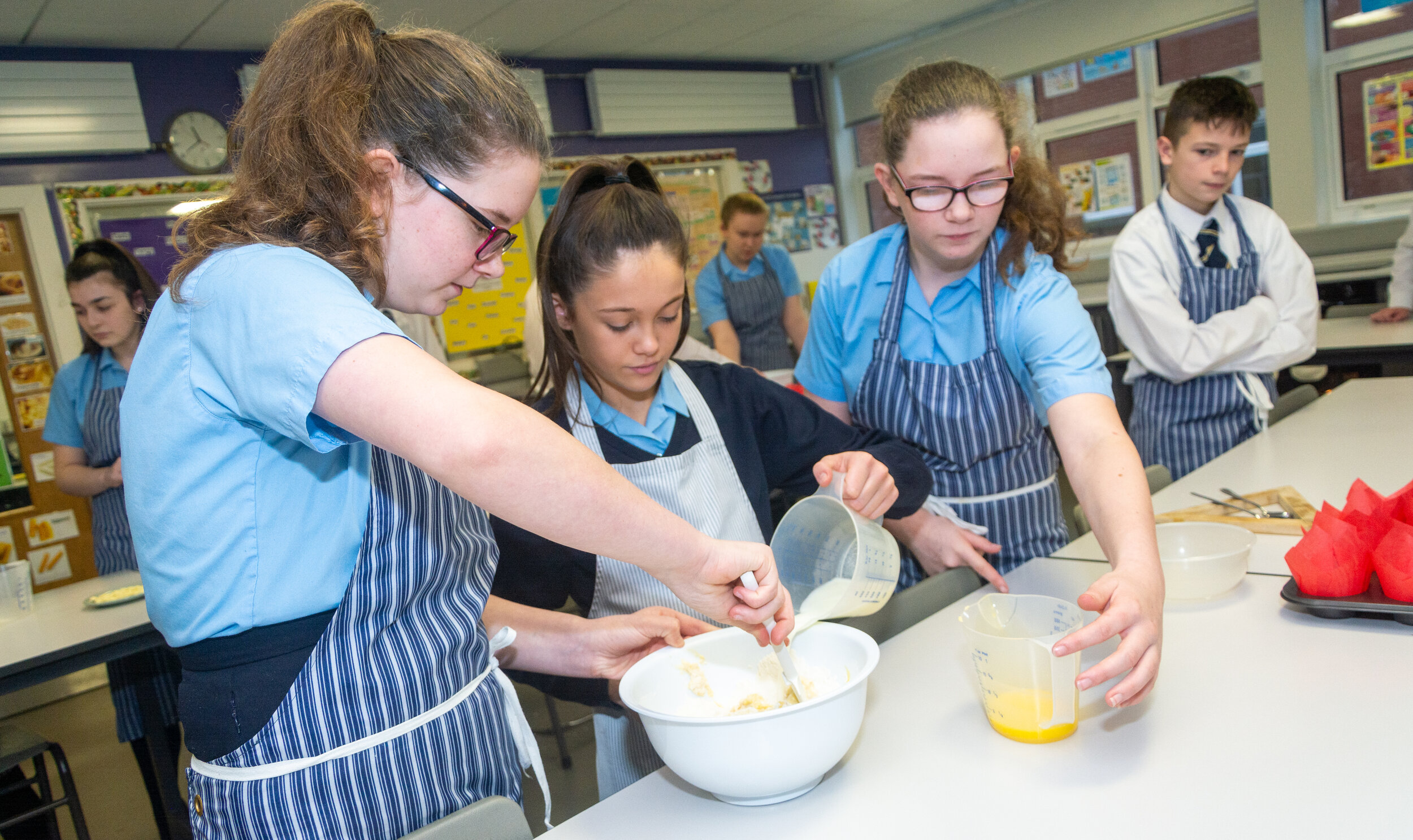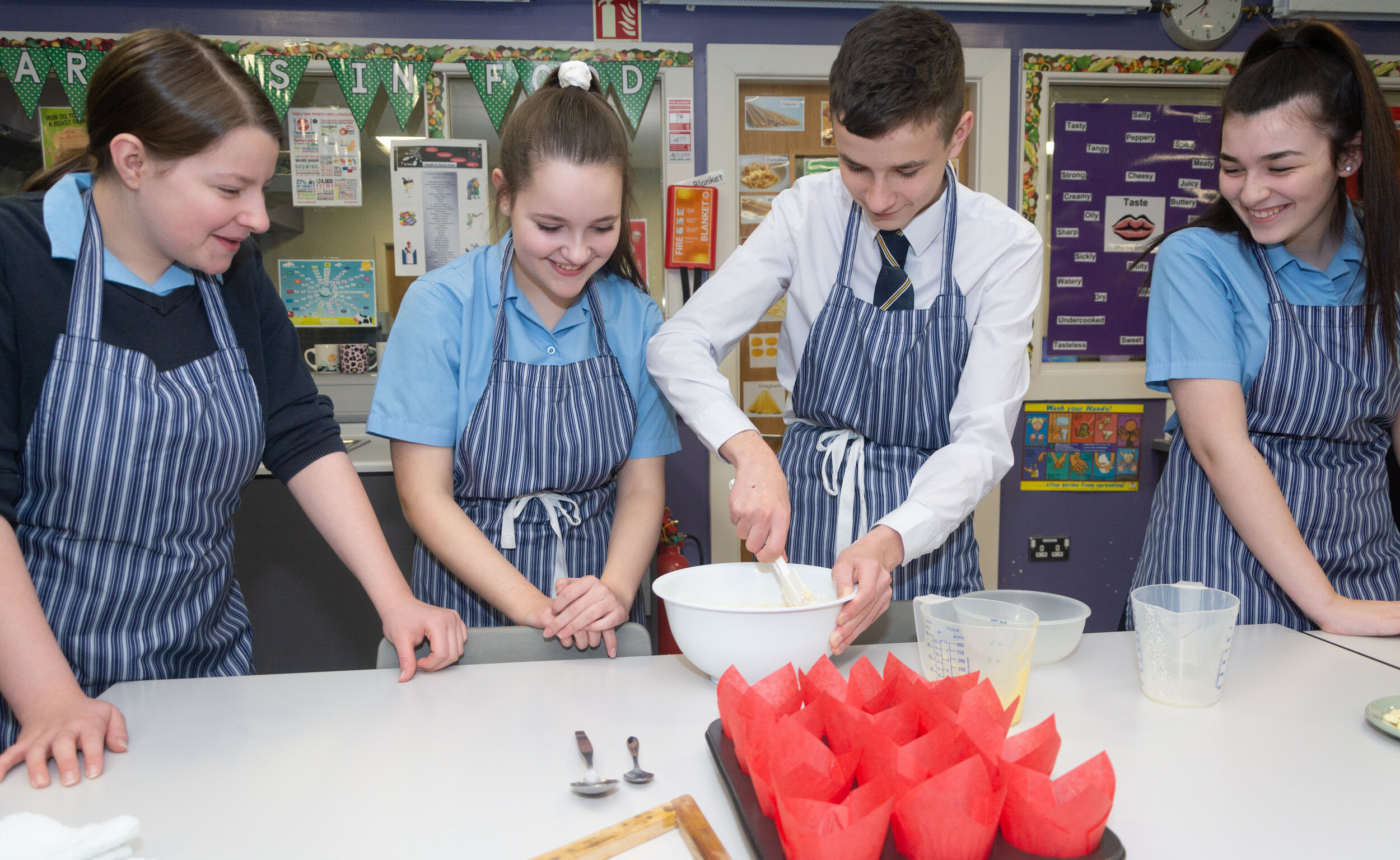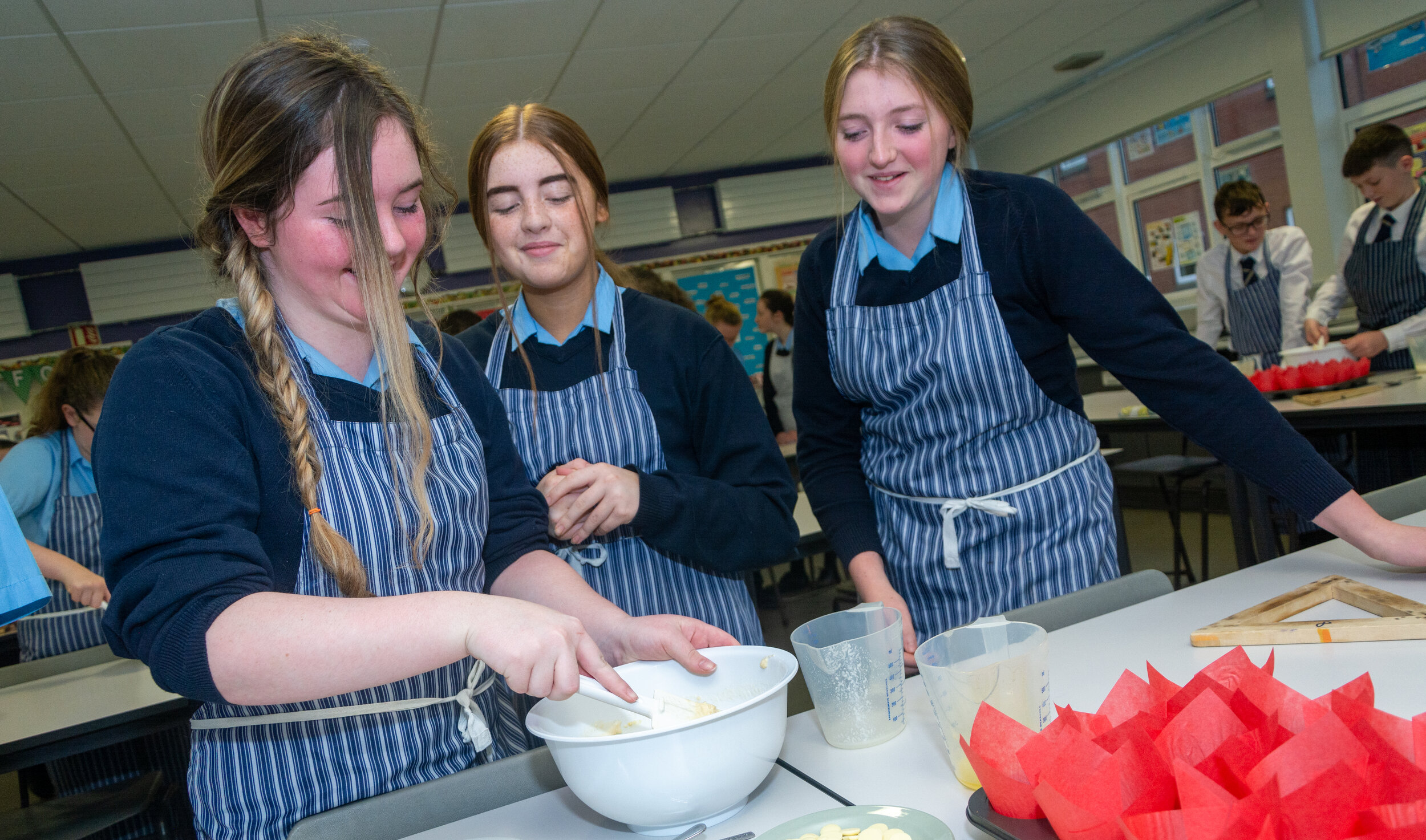Home Economics Department
Staff in Department
Mr A Howard (Head of Department)
Ms C Daly
Mrs A Tyther
Mrs L Boyle (Technician)
Aims
Home Economics is a core subject within the curriculum, through which many skills are developed; particularly the practical skills involved in preparing and cooking food. Through Key Stage 3 our emphasis is learning to be proficient in the kitchen, on healthy food choices, diet and health, and exploring home and family life.
Facilities and Resources
The Home Economics department is a modern, forward thinking and vibrant department that constantly strives to ensure pupils achieve success in exams and develop the practical skills to be safe in the kitchen. Pupils benefit from working in purpose built rooms, with access to two computer suites. Practical lessons are designed to inspire pupils to enjoy cooking, learn the importance of hygiene, experiment with a range of ingredients to widen their food experiences and develop their creativity in food preparation. It’s also fun to cook!
Key Stage 3
Home Economics at Key Stage 3 develops the pupil’s ability to make good food choices and develops a range of skills in food preparation and cooking to encourage a positive and healthy relationship with food and eating. It develops thinking skills and personal capabilities that enable students to lead effective lives as individuals and family members as well as members of the wider community. Home Economics helps pupils explore their health in a practical context, enhancing their potential to live a healthy lifestyle and make responsible choices about their diet and food. It gives pupils a sense of themselves as social beings and how they relate to one another; making them aware of the values and lifestyles that are different to their own and helping them make reasoned judgements in family relationships. It also increases pupil awareness of their role as consumers in a changing economy to help them become discerning and effective when making judgements in relation to the environment and personal finances.
Key Stage 4
Child Development
The CCEA based syllabus seeks pupils to develop an understanding of conception, parenting and the social, physical ,intellectual, communication and emotional needs of babies and young children. The course covers the following areas:
Parenthood and Pregnancy
Diet and Lifestyle during pregnancy
Birth and the new-born baby
Physical, Intellectual, Communication, Social and Emotional Development,
Weaning and dietary needs of the child
Child health and Education
Hospitality
This CCEA based course allows for the development of both practical skills and theory based skills covering working in the hospitality industry. The CCEA specification is the only GCSE Hospitality course offered in the UK. Topics include diet and health, first aid, customer care and marketing.
Students develop and learn about the following topics:
how hospitality organisations operate;
how the industry meets people’s needs;
the products and services it offers;
employment possibilities in hospitality;
the importance of quality and customer service;
basic food hygiene practices; and
the skills required to provide food and drink for customer’s
Practical tasks reinforce the learning and allow students to discover what it’s like to work in the hospitality industry. They also learn about hospitality career opportunities, including front-of-house and food and beverage roles. This enables them to make informed choices about further education, training and/or employment.
The specification is unitised, so it’s possible to take part of the assessment at the end of the first year of study.
This specification has three units:
Unit 1: The Hospitality Industry
Unit 2: Hospitality and the Customer
Unit 3: Food and Beverage Preparation and Service
Occupational Studies
This modular study course provides an appropriate alternative to traditional GCSE subject studies.
Students will learn practical skills for 2 years. Year 11 focuses on a Contemporary Cuisine Unit in which pupils learn about health & safety in catering, and develop starter, main and dessert course preparation skills. Year 12 will focus on a Patisserie and Baking Unit in which pupils focus on the preparation of breads and scones, cakes and biscuits and all pastry products.
Assessment for both years of the course will take place consistently throughout. Students will either attain Level 1 (equivalent to GCSE D-G Grade) or Level 2 (equivalent to GCSE A*-C) at the end of 2 years.
